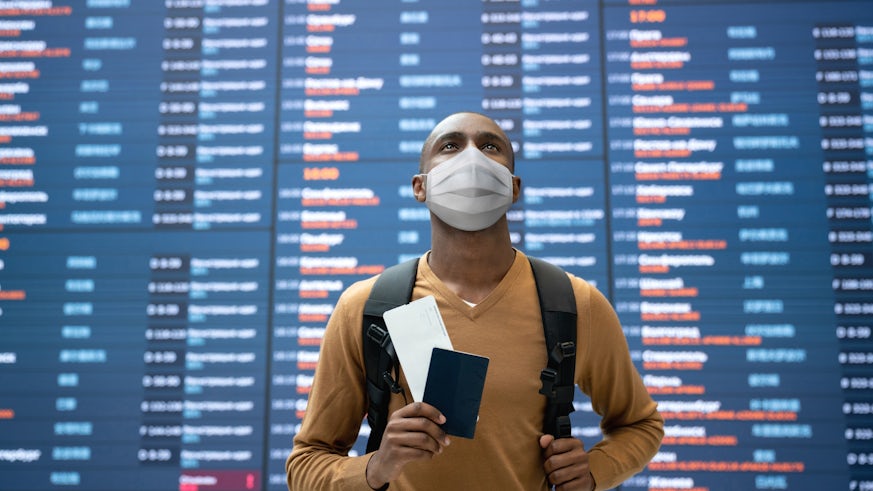Flight cancellations, consumer rights and the COVID-19 pandemic
8 September 2021

An interdisciplinary team of researchers from the School of Law and Politics and Cardiff Business School are investigating consumer awareness of legal rights during the pandemic.
Senior Lecturer in Law, Dr. Sara Drake, Senior Lecturer in Marketing, Dr. Carmela Bosangit and Reader in Marketing, Strategy and Business, Dr. Stephanie Slater, were awarded funding by Cardiff University’s Centre for Law and Society to conduct focus groups to find out how much consumers knew about their air passenger rights when their flights were cancelled during the pandemic and about any avenues for redress. The team also gathered data on how participants felt about their experience with airlines and whether this would affect their travel behaviour in the future. The team was assisted by Research Assistant, Geena Whiteman.
One of the benefits of EU membership for consumers in the UK has been the high level of protection conferred by EU law when flights are cancelled. When the pandemic struck Europe in March 2020, this law still applied in the UK and continued to do so until 31 December 2020. Fortunately for consumers, the same level of protection has been retained post-Brexit. Through Regulation 261/2004, air passengers who travel either from an airport in the UK, EU, EEA, or Switzerland, or from an airport in a third country to the UK, EU, EEA or Switzerland with an air carrier licensed in one of these countries are entitled to a full cash refund within seven days if their flight is cancelled by the airline. An air passenger can choose to accept a travel voucher but is not required to do so.
Although the failure of airlines to comply with their legal obligations is not new, the pandemic and the mass cancellations of flights raised awareness of the issue to another level. Many airlines were slow to comply with the law and some EU countries went as far as to call on the European Commission to suspend consumer protection for air passengers. The European Commission refused and the majority of airlines have gradually fulfilled their obligations, often under pressure from national enforcement bodies such as the UK’s Civil Aviation Authority.

"We wanted to find out more about the gap between the law on paper and the law in action. How were air passengers treated by airlines during the pandemic and how did they feel about the service they received? To what extent did they know what to do if they were unhappy with the response?"
There are various pathways for redress if air passengers are unhappy with the response of their airline and want to take matters further. While a complaint to the UK’s regulator, the Civil Aviation Authority (CAA), will not secure redress for the individual consumer, the CAA can put pressure on the airlines to comply with the law behind the scenes and can follow this up with enforcement actions before the courts. Consumers can turn to the UK’s two aviation ADR bodies, Aviation ADR and the Centre for Effective Dispute Resolution, but few consumers know of their existence and not all airlines agree to resolve disputes this way. Pursuing legal action either through a claims management firm or directly before the courts is not always a palatable option for consumers where the amount disputed in relatively small.
What has struck the team about the data analysed so far is the range of media sources from which consumers learnt about their rights during the crisis juxtaposed against the low level of awareness about how these rights can be enforced. It was clear from the focus groups that knowledge of the different avenues of redress was very patchy and at times non-existent.
The valuable insights gained from this project will help the team identify gaps and limitations to the effective enforcement of consumer rights and allow them to develop proposals for law and policy makers for improving the law and its operation. This research builds on previous research undertaken by Dr Drake on the effective enforcement of EU law and policy (Drake and Smith, 2016) including a report authored for the European Parliament (2018) on air passenger rights.


